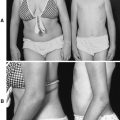Infectious diseases have long posed a significant threat to global health. From historical pandemics like the Spanish Flu to modern crises such as COVID-19, the need for timely and accurate diagnosis has never been more critical. In recent years, the development of rapid testing methods has transformed the way public health systems respond to outbreaks. These innovations offer faster results, enabling quicker treatments and preventing further spread. However, while rapid diagnostic tests (RDTs) offer immense benefits, they also present unique challenges in terms of accessibility, accuracy, and application in diverse global settings.

SRC: https://www.pexels.com/photo/silver-iphone-6-beside-silver-and-red-pen-7723395/
The advancement of diagnostic tools for infectious diseases
Traditional diagnostic methods for infectious diseases relied heavily on clinical signs and symptoms, along with lengthy laboratory tests. These tests, though effective, often required days or even weeks to return results, delaying the diagnosis and treatment process. This delay could mean the difference between life and death for individuals, and it significantly impacted public health efforts to contain outbreaks. The advent of rapid testing technologies has revolutionized this process, drastically cutting down the time required for diagnosis. Polymerase chain reaction (PCR) tests, antigen tests, and other RDTs now allow healthcare professionals to identify infections in hours or even minutes. This rapid turnaround has been particularly crucial during outbreaks of highly contagious diseases such as Ebola and COVID-19.
Importance of Speed in a Global Health Context
When a highly infectious disease emerges, time is a critical factor in mitigating its spread. Delayed diagnoses can allow diseases to spread uncontrollably, often across borders, turning localized outbreaks into global pandemics. Rapid testing provides health officials with the data they need to make informed decisions about quarantines, travel restrictions, and treatment protocols. In the globalized world we live in, diseases can travel quickly, facilitated by human movement. Therefore, rapid diagnostic testing is an essential tool not only for immediate patient care but also for public health management at a larger scale. Early detection of infections allows for swift isolation of patients, reducing transmission rates and aiding in global containment efforts.
Challenges and Limitations of Rapid Testing
Despite its clear advantages, rapid testing is not without its limitations. Accuracy remains a concern, particularly with rapid antigen tests that may yield false negatives or positives. False negatives can result in infected individuals unknowingly spreading the disease, while false positives can lead to unnecessary treatments or isolation measures. Ensuring the reliability of these tests is essential to their role in controlling disease outbreaks. Furthermore, while rapid testing has become increasingly common in well-resourced countries, it remains less accessible in low-income regions. These areas often face barriers such as the lack of healthcare infrastructure, trained personnel, and affordable diagnostic technologies. Ensuring equitable access to rapid diagnostic testing worldwide is a critical challenge in the fight against infectious diseases.
The Role of Technology in Expanding Access
Technological advancements have played a key role in overcoming some of the challenges associated with rapid testing. Innovations such as portable testing devices and simplified testing procedures have made it easier to deploy diagnostic tools in remote or underserved areas. Point-of-care testing, which allows for diagnosis at or near the site of patient care, has also emerged as a powerful tool for addressing infectious diseases in rural and low-income regions. These technologies reduce the need for centralized laboratories, making it possible to diagnose and treat patients more efficiently, even in challenging settings. Governments, international health organizations, and private companies have recognized the importance of expanding access to rapid testing to ensure that all populations are protected.
A Promising Future: Industry Contributions
As the demand for rapid diagnostic tests grows, many companies are stepping up to provide cutting-edge solutions tailored to meet the evolving needs of healthcare providers and patients. Companies has emerged as a leader in the field by combining advanced technology with a customer-centric approach. With a commitment to technology and customer satisfaction, Eiger Diagnostics delivers reliable testing solutions tailored to meet your needs. Their focus on innovation has allowed them to develop highly sensitive and specific tests, ensuring accurate results in a matter of minutes. By delivering trusted diagnostic tools, these companies are are playing a vital role in enhancing global health security and protecting populations from the threat of infectious diseases.
Rapid Testing in Future Global Health Threats
Looking ahead, the role of rapid diagnostic testing in managing infectious diseases will only become more prominent. As new pathogens emerge and existing ones mutate, the ability to quickly detect infections will be crucial to preventing large-scale outbreaks. Climate change, urbanization, and increased human-animal interactions are all factors that contribute to the heightened risk of infectious disease outbreaks. Rapid testing will be an integral component of future public health strategies, helping to identify and contain diseases before they can cause widespread harm. Additionally, advancements in artificial intelligence and machine learning hold the potential to further enhance diagnostic capabilities, making tests faster, more accurate, and accessible to more people worldwide.
The Path Forward
Infectious diseases will continue to pose a significant challenge to global health, but the advancements in rapid testing provide a powerful tool for mitigating their impact. While challenges such as accuracy and accessibility persist, the ongoing development of innovative testing technologies promises a brighter future for disease diagnosis. As the world faces new health threats, the collaboration between governments, international organizations, and private companies like Eiger Diagnostics will be crucial in ensuring that all populations have access to the tools needed for effective diagnosis and treatment. By investing in these technologies, we can better prepare for and respond to global health crises, protecting lives and preventing the spread of infectious diseases across borders.




